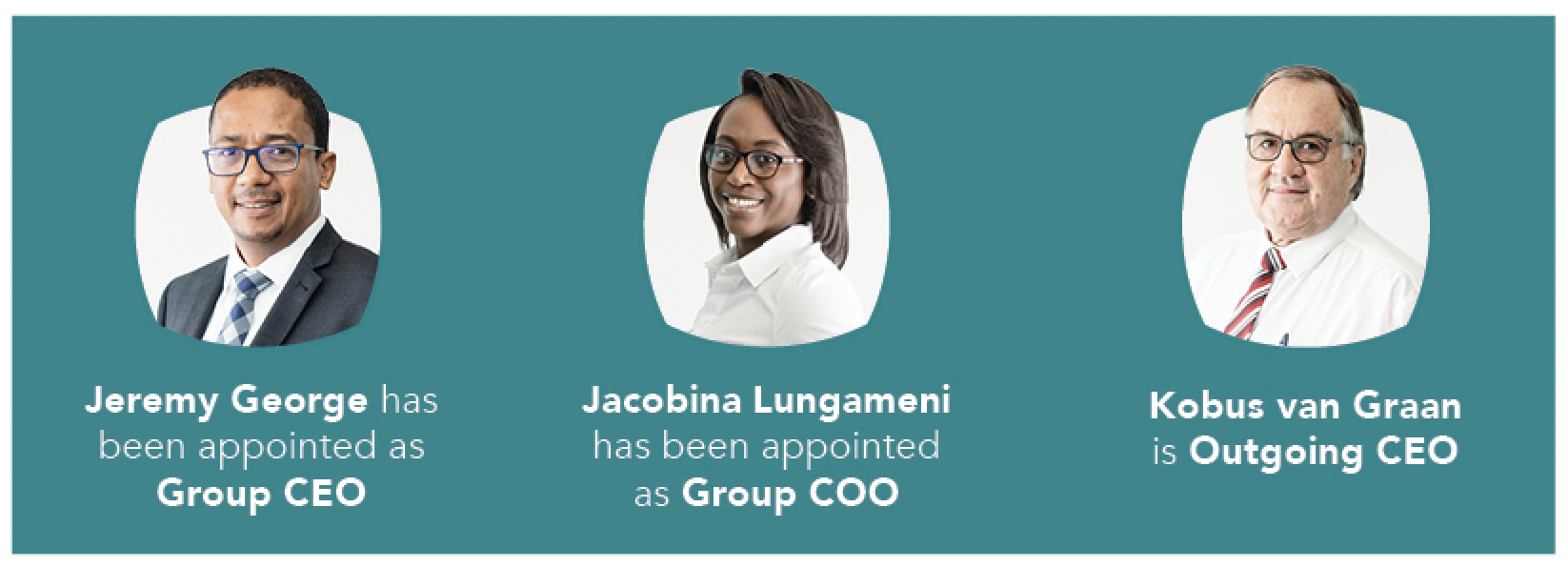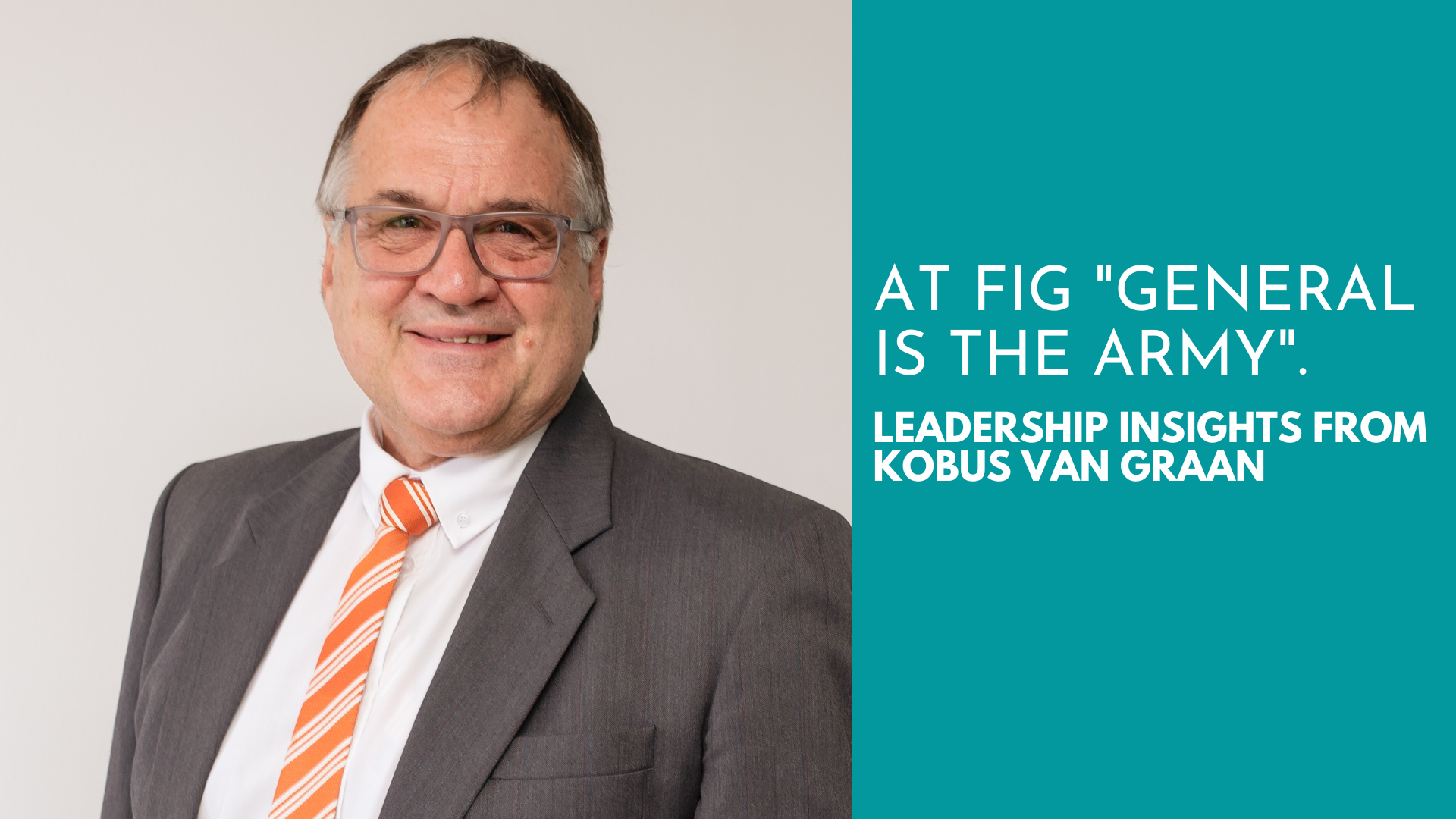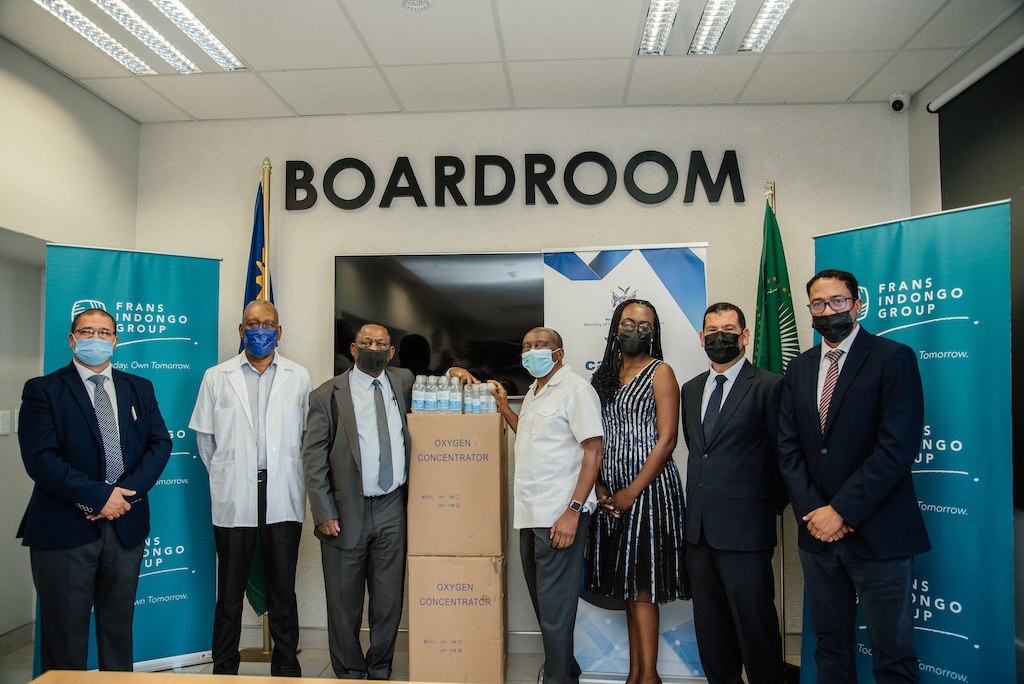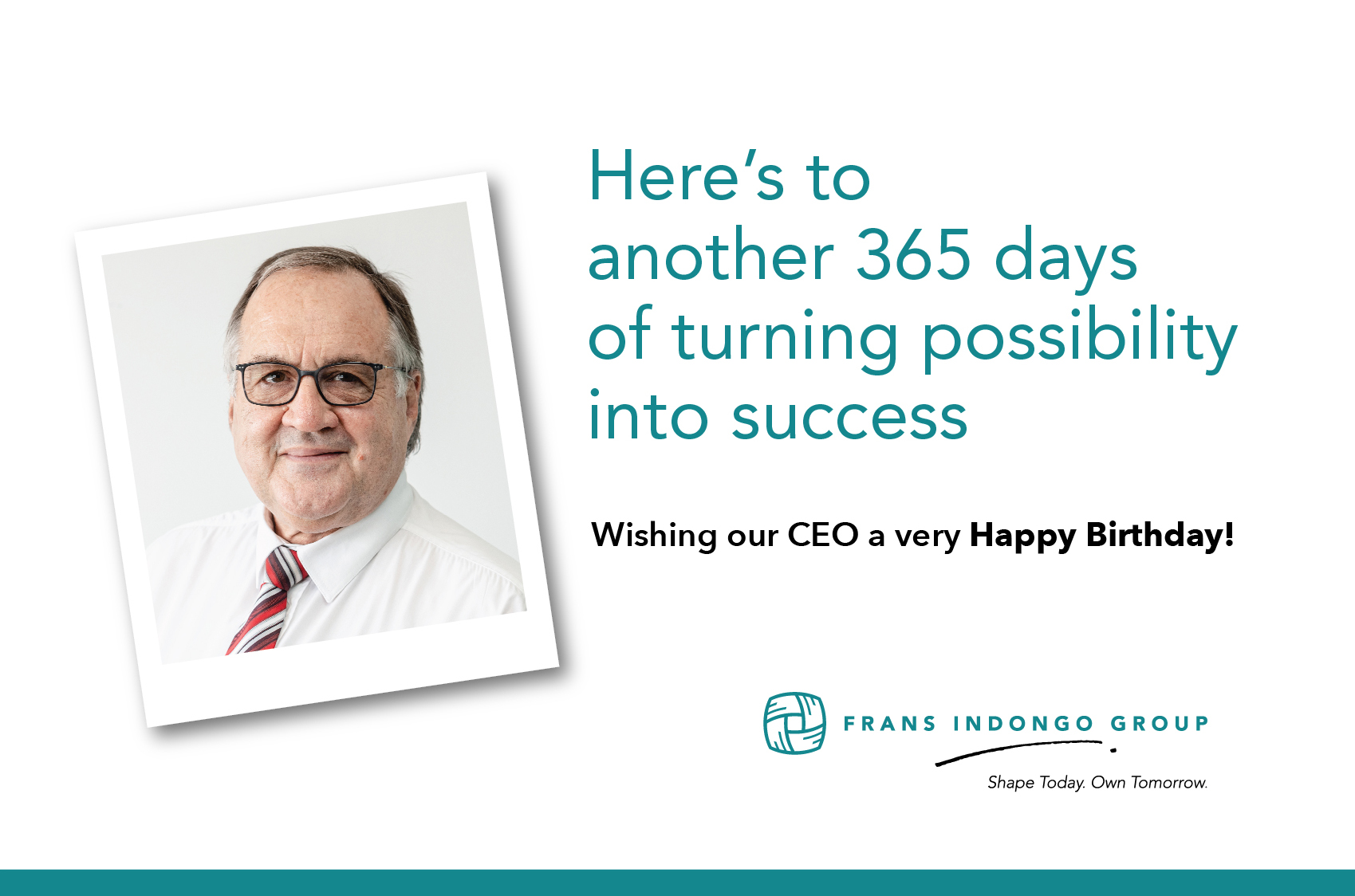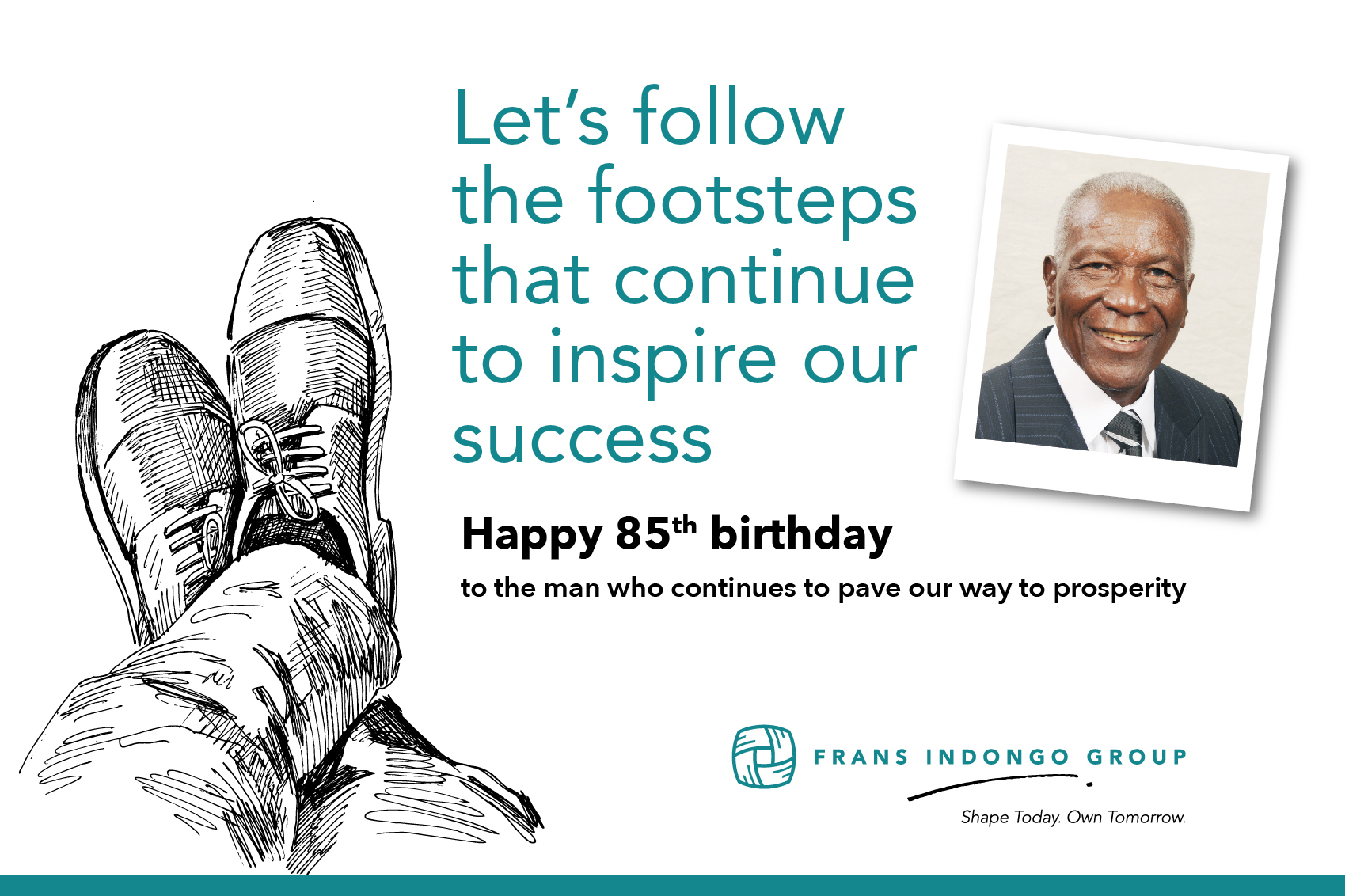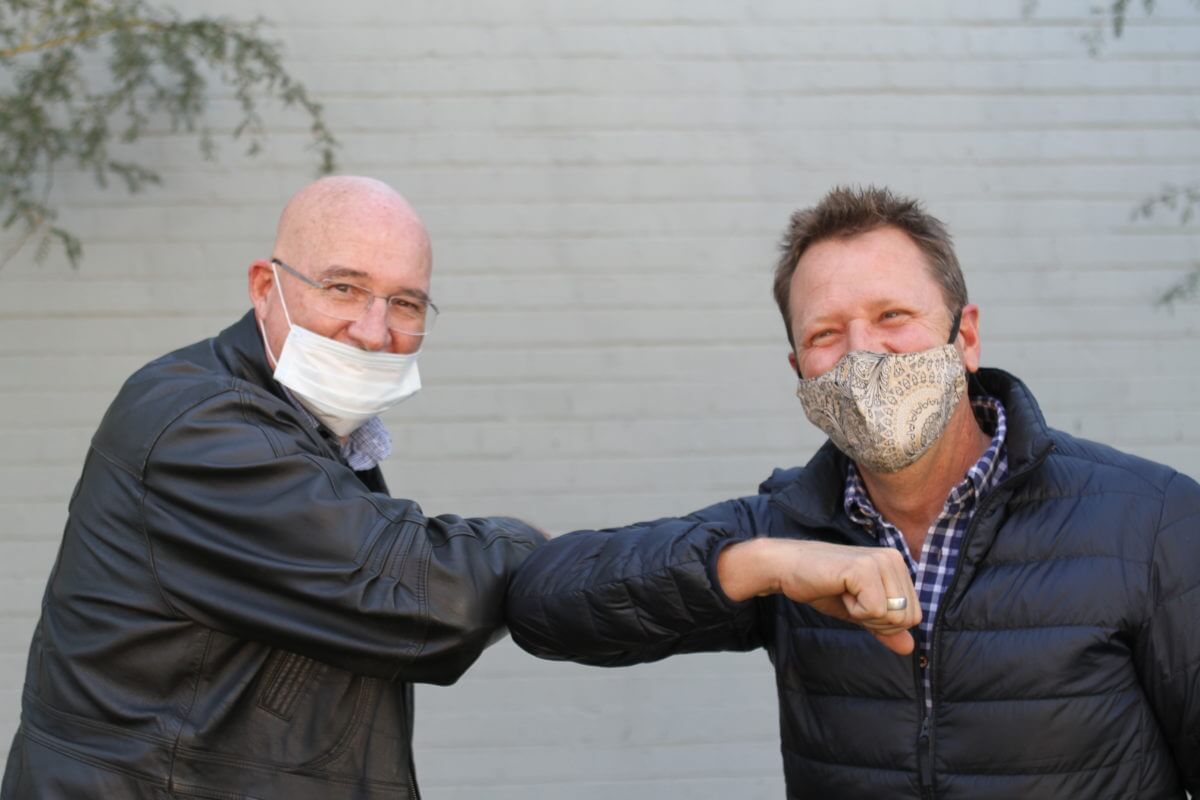
Insights from Jeremy GeorgeMuch has been written about lean and agile systems and management. Put simply, lean focuses on ‘creating more value for customers with fewer resources’1, while ‘agile project management is an iterative approach focused on breaking down large projects into more manageable tasks, which are completed in short repetitions throughout the project life cycle, thus allowing project teams to complete work faster, adapt to changing project requirements, and optimize their workflow’2. In both cases, the principles associated with these management styles focus on maximising customer value and optimizing resource use, sustainably.
Achieving both lean and agile systems is no easy feat, but the Frans Indongo Group – by nature and nurture – has made combining these concepts a key strength. Jeremy George, FIG’s Chief Operations and Commercial Officer, believes that this must be facilitated by an organizational culture that promotes thinking in line with the core values of lean and agile. For ‘lean management’, these values include a focus on purpose (key to FIG in terms of the groups slogan, mission and vision), process (in terms of ensuring each step is ‘valuable, capable, available, adequate, flexible’), and people (ensuring everyone involved is adding positively to the value stream). And for ‘agile’, these values include ‘individuals and interactions over processes and tools’, ‘customer collaboration over contract negotiation’ and ‘responding to change over following a plan’, amongst others.
Jeremy joined the Group in 2017. A trained accountant who came to FIG after working in some of Namibia’s leading audit firms and financial corporations, Jeremy says the transition to FIG brought about exponential growth for him. “FIG is a lean and agile organisation; and the opportunity to be actively involved in different sectors and companies, and to experience the diversity of businesses within the Group is incredibly rewarding.” He emphasizes that the ability to constantly seek and maximise customer value in a lean and agile way requires an approach that is entrenched throughout the group, and an understanding that sustainability is key. “Our logo reflects the beginnings of a traditional basket. These baskets start in the middle, and build out, which means they have to have a solid core for the basket to function as it should for the long term. If the core is started well, sustainability is a natural outcome.”
At FIG, the elements that strengthen its core also promote its agility and sustainability. “Our Board of Directors and Trustees are a diverse group of Namibians who all own their own businesses. They therefore understand the dynamics of business and growth, and bring a range of expertise that allows us to think differently in a fast-changing environment. They bring important insights to our diverse portfolio, and move on that with management and head office quickly and efficiently, which allows for effective decision-making and efficient execution.
Additionally, we have a highly inclusive management that engages readily and effectively, including in terms of promoting organizational cultures in line with the Group values.”
Jeremy says the Group’s agility has allowed it to be highly innovative, to respond to challenges quickly and effectively, and to think differently – outside the box and/or into new boxes – even in times of crisis. These attributes have allowed FIG to nurture sustainable businesses that should withstand the test of time. A recent and exciting example is the setup of a wheel alignment and tyre centre at one of the Indongo car dealerships – a service inspired by customers who believed this would be a valuable addition at the dealership. “The idea was brought forward in discussions with local leadership with approval having taken place swiftly to move forward on the project. This speaks to the level of innovation supported at the various businesses, as well as to the value of teamwork in spurring this innovation.”
Importantly, this mindset of constantly improving for long term gain is something that permeates throughout the organization on a personal and professional level, highlighting the value of people over profits and bringing the Group’s slogan – ‘Shape today. Own tomorrow.’ – to life on a daily basis. This ideology helps to frame FIG’s inclusive organizational culture that encompasses shared values, and to ensure that it is continuously looking for ways to improve business, process and customer value. It is a culture that demands generational thinking as the group puts in place the systems for sustained legacy.
“There are many definitions of organizational culture, but what it essentially boils down to is values, and consistent and authentic behaviours. This is the DNA of the organization and what is done within the business,” says Jeremy. The values that frame our culture are clear in the execution of the Group’s business strategy. Amongst others, these include accountability as the companies exercise their freedom to try new things, consistency, integrity, communication and collaboration, openness to feedback, and showing client appreciation.”
Jeremy says that it is vital that those tasked with the leadership of the companies in the Group live by and display these values in ensuring that the promise to the client is kept and exceeded, and sustainability promoted. This, with the understanding that living out these values at the corporate level requires teamwork, both internally and beyond the organization.
“There is an African proverb that says ‘if you want to go fast, go alone, but if you want to go far, go together’. This is an absolutely valuable way of thinking, which frames the way in which FIG enables its future, sustains its businesses, and creates long-term value for all the people it serves.”

